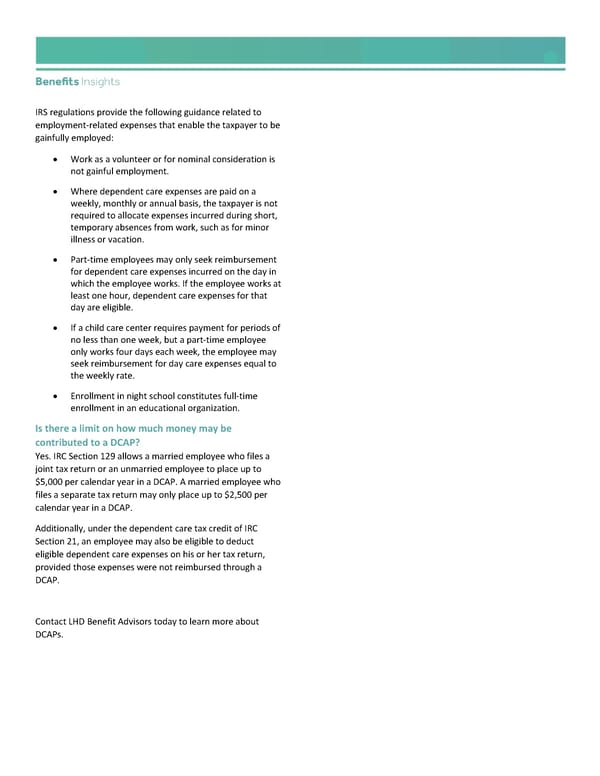IRS regulations provide the following guidance related to employment-related expenses that enable the taxpayer to be gainfully employed: • Work as a volunteer or for nominal consideration is not gainful employment. • Where dependent care expenses are paid on a weekly, monthly or annual basis, the taxpayer is not required to allocate expenses incurred during short, temporary absences from work, such as for minor illness or vacation. • Part-time employees may only seek reimbursement for dependent care expenses incurred on the day in which the employee works. If the employee works at least one hour, dependent care expenses for that day are eligible. • If a child care center requires payment for periods of no less than one week, but a part-time employee only works four days each week, the employee may seek reimbursement for day care expenses equal to the weekly rate. • Enrollment in night school constitutes full-time enrollment in an educational organization. Is there a limit on how much money may be contributed to a DCAP? Yes. IRC Section 129 allows a married employee who files a joint tax return or an unmarried employee to place up to $5,000 per calendar year in a DCAP. A married employee who files a separate tax return may only place up to $2,500 per calendar year in a DCAP. Additionally, under the dependent care tax credit of IRC Section 21, an employee may also be eligible to deduct eligible dependent care expenses on his or her tax return, provided those expenses were not reimbursed through a DCAP. Contact LHD Benefit Advisors today to learn more about DCAPs.
 Dependent Care Benefits Page 2
Dependent Care Benefits Page 2 